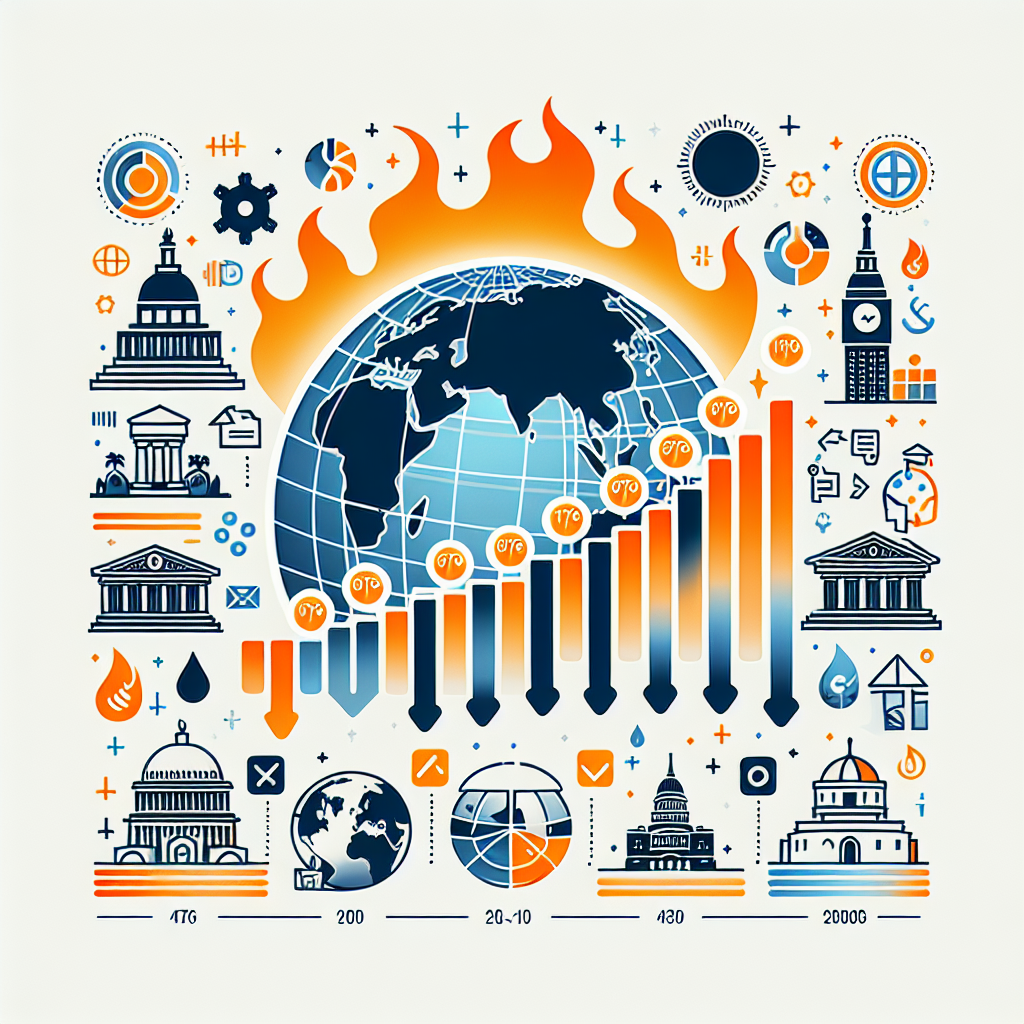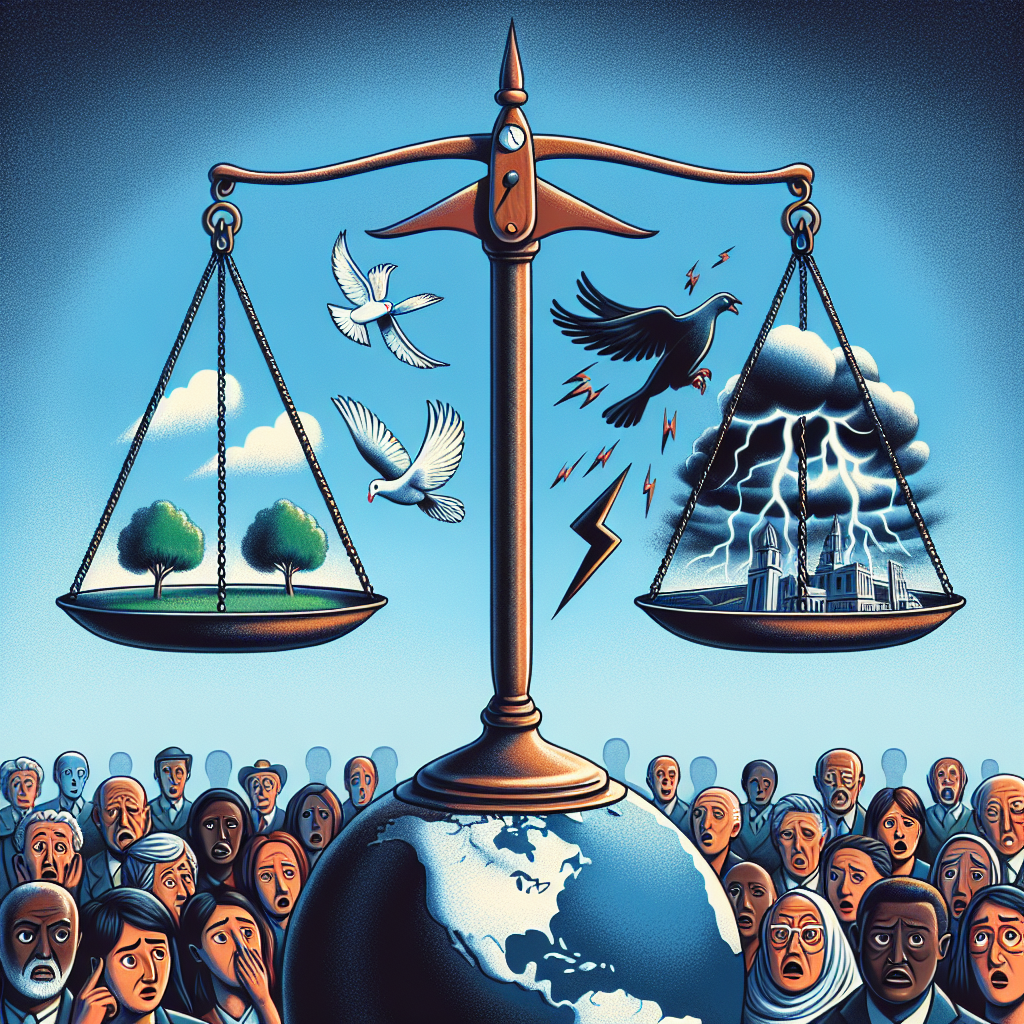
Climate Change and Its Growing Importance in Political Arenas
The urgency of addressing climate change has become a central theme in political discourses around the globe. As we advance into 2025, the impacts of climate change are increasingly evident, prompting governments, organizations, and individuals to acknowledge its profound consequences. The intricate relationship between climate change and politics has gained traction, as politicians strive to balance economic growth with environmental sustainability. In this detailed article, we delve into the growing significance of climate change within political arenas, exploring the ramifications, strategies, and global movements that shape this critical field.
The Political Landscape of Climate Change
The political discourse surrounding climate change has evolved dramatically over the past few decades. Once considered a niche concern, it is now a prevailing issue that shapes national agendas worldwide. In 2025, climate change is at the forefront of political discussions, influencing everything from election campaigns to international relations. Nations are increasingly held accountable for their carbon emissions, with public opinion demanding transparency and urgency in addressing this global crisis. This shift has led to the formation of coalitions and treaties aimed explicitly at reducing greenhouse gas emissions and promoting sustainable practices.
Political parties across the spectrum are now required to formulate clear and actionable climate policies in order to resonate with voters. In many countries, left-leaning parties advocate for aggressive climate action, pushing for renewable energy investments, carbon pricing, and stringent regulations on polluting industries. Conversely, right-leaning parties have also begun to acknowledge climate issues, although their approach often emphasizes market-driven solutions and energy independence. This evolving political landscape highlights the necessity for politicians to engage with climate change, reflecting its growing importance in political arenas worldwide.
International Agreements and Climate Politics
In 2025, international agreements play a pivotal role in the global response to climate change. The Paris Agreement remains a cornerstone of international climate policy, aiming to limit global warming to well below 2 degrees Celsius above pre-industrial levels. Recent negotiations have focused not only on mitigation strategies but also on adaptation and financial support for developing nations. The concept of “climate justice” has gained traction, emphasizing the moral responsibility of wealthier countries to assist less developed nations that disproportionately suffer the effects of climate change.
Moreover, initiatives such as the UN Climate Change Conference continue to foster collaboration among nations. These conferences serve as critical platforms for dialogue and negotiation, enabling countries to set binding targets and share technological advancements. As more countries commit to net-zero emissions by mid-century, the political landscape becomes increasingly intertwined with environmental science, reinforcing the notion that effective climate action must be rooted in sound policy frameworks and international cooperation.
The Role of Activism in Political Climate Change Strategies
Grassroots movements have witnessed a meteoric rise in influence, shaping political agendas and pushing climate change to the forefront of public discourse. Organizations led by passionate activists, such as Fridays for Future and Extinction Rebellion, have mobilized millions to advocate for urgent action against climate change. These movements emphasize the need for systemic change, urging governments to prioritize sustainable policies over short-term economic interests. In 2025, the collaboration between politicians and grassroots movements is more essential than ever, as public pressure mounts for tangible results.
In response to the heightened activism, many politicians are now integrating these grassroots demands into their platforms. Some governments have established advisory councils consisting of young activists, acknowledging their role in shaping future policies. This collaboration not only fosters a more inclusive political environment but also amplifies the voices that demand climate action. Politicians are increasingly recognizing that addressing climate change is not just about regulatory measures, but also about engaging communities and building consensus for long-term sustainability.
The Economic Implications of Climate Change Politics
As climate change becomes a focal point in political arenas, its economic implications cannot be overlooked. The transition to a green economy presents both opportunities and challenges for governments and industries. In 2025, nations are grappling with the economic impacts of climate policies, balancing the need for innovation and job creation while simultaneously tackling environmental issues. Renewable energy sectors are expanding rapidly, leading to the creation of millions of new jobs in fields such as solar, wind, and energy efficiency. However, this transition also poses difficulties for traditional industries reliant on fossil fuels, necessitating careful management of the workforce.
Moreover, the economic burden of climate inaction is increasingly evident. Natural disasters linked to climate change, such as wildfires, hurricanes, and floods, are wreaking havoc on infrastructures and economies worldwide. Politicians are under growing pressure to allocate funding for disaster relief and climate resilience projects, highlighting the need for long-term planning and investment. The recognition of these economic realities is pushing governments to adopt more aggressive climate action, as they seek to mitigate the financial risks associated with a warming planet.
The Intersection of Climate Change and Social Justice
Climate change intersects deeply with social justice, amplifying existing inequalities. Vulnerable populations, particularly in developing countries, are bearing the brunt of climate-related impacts, including food insecurity, displacement, and health crises. In 2025, there is a growing recognition among political leaders that addressing climate change must also focus on social equity. Environmental policies that prioritize marginalized communities are essential in ensuring that the benefits of a green economy are distributed fairly.
Furthermore, the concept of “just transition” has gained prominence in political discussions. This approach advocates for policies that not only reduce emissions but also protect the livelihoods of workers who may be adversely affected by the shift away from fossil fuels. Policymakers are increasingly tasked with finding solutions that promote economic stability while fostering environmental sustainability. This intersection of climate change and social justice underscores the importance of inclusive decision-making processes that empower diverse voices in political arenas.
Conclusion
In summary, climate change has cemented its status as a critical issue in political arenas by influencing national agendas, prompting international agreements, inspiring grassroots activism, and shaping economic policies. The recognition that climate change is inextricably linked to social justice further emphasizes the need for comprehensive solutions that prioritize equity and inclusivity. As we navigate the complexities of climate politics in 2025, the collaborative efforts between governments, activists, and communities will be crucial in addressing the urgent challenges posed by climate change.
FAQs Section
1. How has climate change shaped political discourse in recent years?
Climate change has transitioned from a niche concern to a mainstream political issue, influencing party platforms and government policies globally. It plays a critical role in elections and international relations.
2. What are the key international agreements addressing climate change?
The Paris Agreement is a central framework aiming to limit global warming, along with other initiatives like the UN Climate Change Conference, which facilitate collaboration among nations.
3. How do grassroots movements affect climate policies?
Grassroots movements have mobilized public opinion, pressuring politicians to adopt more aggressive climate policies, emphasizing the urgency of systemic changes to tackle climate issues.
4. What economic opportunities arise from addressing climate change?
The transition to a green economy presents opportunities including job creation in renewable energy sectors and innovations aimed at reducing emissions while ensuring sustainable development.
5. Why is the connection between climate change and social justice important?
The impacts of climate change disproportionately affect marginalized communities, making it essential for climate policies to include social equity considerations to ensure fair distribution of resources and benefits.
Democracy versus Autocracy: A Global Perspective
16. Dezember 2025The Impact of Sanctions on Global Trade Dynamics
16. Dezember 2025Geopolitical Tensions in the South China Sea
16. Dezember 2025
Leave a reply Antwort abbrechen
-
The Balance of Power: How Political Opinions Shift During Crises
22. November 2025 -
The Best Football Highlights from World Cup Finals
15. Juli 2025 -
Championship Glory as Team X Claims NBA Finals Title
13. Juli 2025





